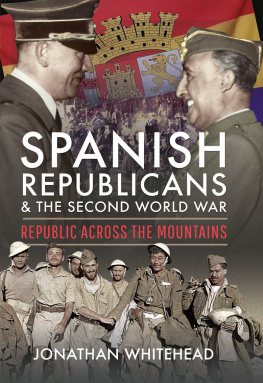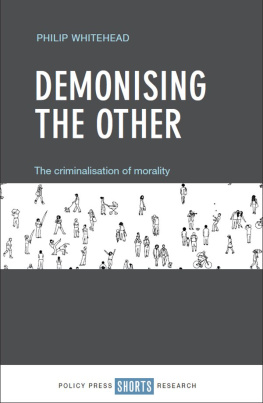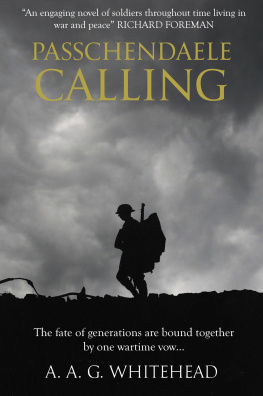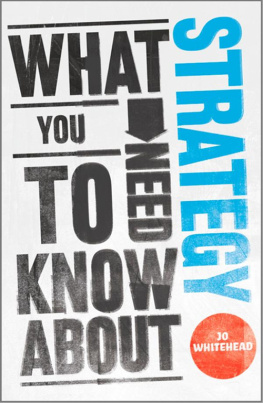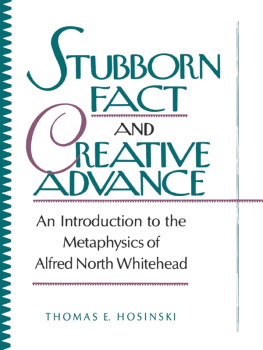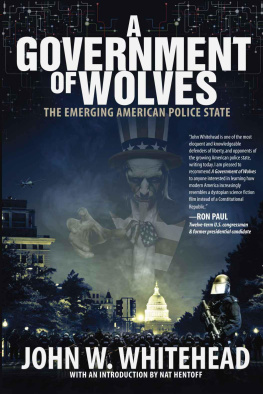SPANISH
REPUBLICANS
AND THE SECOND WORLD WAR
Le vent souffle sur les tombes
La libert reviendra
On nous oubliera
Nous rentrerons dans lombre
Emmanuel DAstier de la Vigerie
SPANISH
REPUBLICANS
AND THE SECOND WORLD WAR
REPUBLIC ACROSS THE MOUNTAINS
JONATHAN WHITEHEAD
First published in Great Britain in 2021 by
PEN AND SWORD HISTORY
An imprint of
Pen & Sword Books Ltd
Yorkshire Philadelphia
Copyright Jonathan Whitehead, 2021
ISBN 978 1 39900 451 0
eISBN 978 1 39900 452 7
Mobi ISBN 978 1 39900 453 4
The right of Jonathan Whitehead to be identified as Author of this work has been asserted by him in accordance with the Copyright, Designs and Patents Act 1988.
A CIP catalogue record for this book is available from the British Library.
All rights reserved. No part of this book may be reproduced or transmitted in any form or by any means, electronic or mechanical including photocopying, recording or by any information storage and retrieval system, without permission from the Publisher in writing.
Pen & Sword Books Limited incorporates the imprints of Atlas, Archaeology, Aviation, Discovery, Family History, Fiction, History, Maritime, Military, Military Classics, Politics, Select, Transport, True Crime, Air World, Frontline Publishing, Leo Cooper, Remember When, Seaforth Publishing, The Praetorian Press, Wharncliffe Local History, Wharncliffe Transport, Wharncliffe True Crime and White Owl.
For a complete list of Pen & Sword titles please contact
PEN & SWORD BOOKS LIMITED
47 Church Street, Barnsley, South Yorkshire, S70 2AS, England
E-mail:
Website: www.pen-and-sword.co.uk
Or
PEN AND SWORD BOOKS
1950 Lawrence Rd, Havertown, PA 19083, USA
E-mail:
Website: www.penandswordbooks.com
Acknowledgements
First, a word of thanks to the staff at Pen & Sword who in the difficult circumstances that prevailed in 2020 showed remarkable professionalism and patience. And to Claire Hopkins, Laura Hirst and Chris Cocks in particular for their encouragement and generous support.
I should like to express my appreciation for the work of the Asociacin para la Recuperacin de la Memoria Histrica in Spain and the unstinting work they have done on behalf of the victims of Francos regime. Often in the face of obstruction by state and local authorities, they have fought resolutely in pursuit of justice for those who suffered under the dictatorship. At an international level I should like to mention the work of UNCHR in seeking to alleviate the anguish of the victims of the refugee crises that continue to plague the world.
I owe a thank you to Mark Smith for sharing his military and railway expertise and checking the text for anomalies. Any errors that remain are mine.
I am also grateful to James Dorrian of the St. Nazaire Society for his insights into the fate of the survivors of the St. Nazaire raid who escaped capture by the Germans. Similarly, I would like to express my gratitude to Simon Martnez of the Association for the Basque Children of the UK/BCA37UK for offering guidance on the contribution to the British war effort made by several of the Basque refugees. The Association works tirelessly to keep alive the stories of the children evacuated to Britain at the height of the Civil War and to record the generosity of those willing to come to the assistance of people suffering oppression wherever they may be.
I should also like to express my appreciation of the work of the Commonwealth War Graves Commission and to thank them for allowing me to use their records. Nor can I forget the International Brigade Memorial Trust and their work to preserve the memory of those who volunteered in the cause of the Spanish Republic.
A special thank-you to Professor Francisco Bolumar of the Universidad de Alcal for navigating the archives at Alcal de Henares and uncovering the telegram from the Spanish ambassador in Washington to the Ministry of Foreign Affairs in Madrid (AGA, [10] 26.2, 54/12434).
As always, I must express my gratitude to my son, David, without whom this book would never have been written and to all my friends and family who have directly or indirectly contributed to this work.
Finally, to all those Spanish Republicans who were in the vanguard of the struggle against Fascism, and their children and grandchildren, who have shared their stories with me. History owes them.
Translation and Place Names
All translations that appear in this book from non-English language sources are by the author. Wherever possible, I have cited from English-language editions.
Spanish place names are a minefield because of the multiplicity of official languages. The historical narrative of the book is centred on north-east Spain where there are three official languages. The first is known to non-Spaniards as Spanish, while most Spanish people tend to call it castellano (with lower-case c), which translates into English as Castilian. The second is Catalan which is cataln in Spanish and catal in the source language. Finally, there is Aranese ( arans ) the dialect of Occitan which is spoken by much of the population in the valley that is at the heart of this history.
I use the English names for each of the languages: Spanish, Catalan and Aranese respectively.
As a general rule, for Spanish towns and regions, I have used the names preferred by the majority of the local population. I have therefore chosen to use Catalan rather than Spanish when referring to Catalan towns, e.g. Girona (Gerona) and Figueres (Figueras). Where I think there may be some confusion, I accompany the Catalan name with the Spanish name in brackets, e.g. Lleida (Lrida).
I avoid using English translations of place names, with one exception: Catalua/Catalunya itself, where the population has become accustomed to using the English name Catalonia.
The Aran Valley, on the border between France and Spain, is called Valle de Arn in Spanish, Vall dAran in Catalan and Val dAran in Aranese. I prefer Val dAran because it is the name used by the people who live there and most historians. It is also the name that is now widely accepted and used by most visitors from the rest of Spain.
Maps

Spain and France (1940) ( Thomas Bohm)

